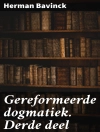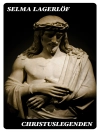In ‘He Came Down from Heaven, ‘ Charles Williams intricately weaves a tale that transcends the boundaries of the mundane, inviting readers into a realm where the spiritual and the earthly coexist. Through an ethereal narrative laden with symbolic imagery, Williams explores themes of redemption, love, and the divine intervention in human lives. His lyrical prose and innovative use of metaphysical concepts not only align with the literary traditions of the Inklings but also evoke the romanticism of earlier figures, positioning Williams as a pivotal voice in 20th-century English literature. Williams, a founding member of the Inklings along with C.S. Lewis and J.R.R. Tolkien, draws on his extensive background in theology and poetry to craft narratives that challenge readers’ perceptions of reality. His devotion to the exploration of mystical dimensions and personal sacrifice reflects his own deep engagement with spiritual philosophy and Christian mysticism, particularly noticeable in the nuanced characterizations throughout the novel. Recommended for readers seeking a profound and contemplative experience, ‘He Came Down from Heaven’ invites exploration of the profound connection between the divine and the human experience. This work is essential for fans of allegorical narratives and those intrigued by the intersection of faith and literature.
เกี่ยวกับผู้แต่ง
Charles Williams (1886–1945) was a significant figure in the mid-20th century British literary scene, known for his versatile contributions as a poet, novelist, theologian, and critic. A member of the Inklings, a literary discussion group that included C.S. Lewis and J.R.R. Tolkien, Williams is often remembered for his unique blend of Christian mysticism, romanticism, and supernaturalism. His work ‘He Came Down from Heaven’ (1938) is a profound exploration of the Incarnation, reflecting his complex theology and deep Anglican faith. Williams’s literary style is characterized by its dense, allusive nature, weaving together aspects of the spiritual and the secular. He was also noted for his works of fiction, such as ‘War in Heaven’ (1930) and ‘Descent into Hell’ (1937), which are marked by the same metaphysical and spiritual concerns seen in his non-fiction. This seminal figure’s legacy endures through his influence on Christian thought and literature, and his works continue to attract scholarly attention for their imaginative power and theological depth. (Carpenter, H. (1978). The Inklings. Boston: Houghton Mifflin.)












